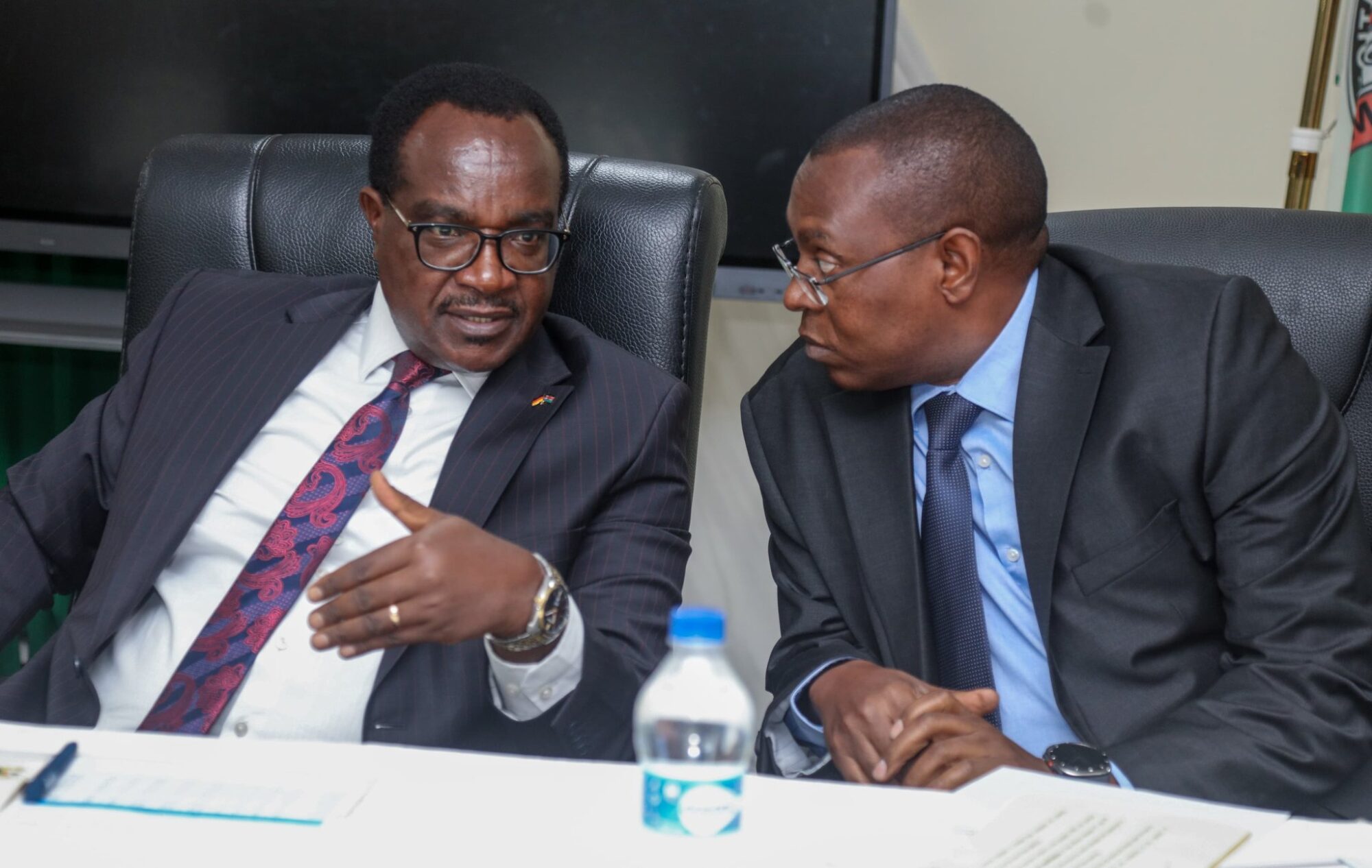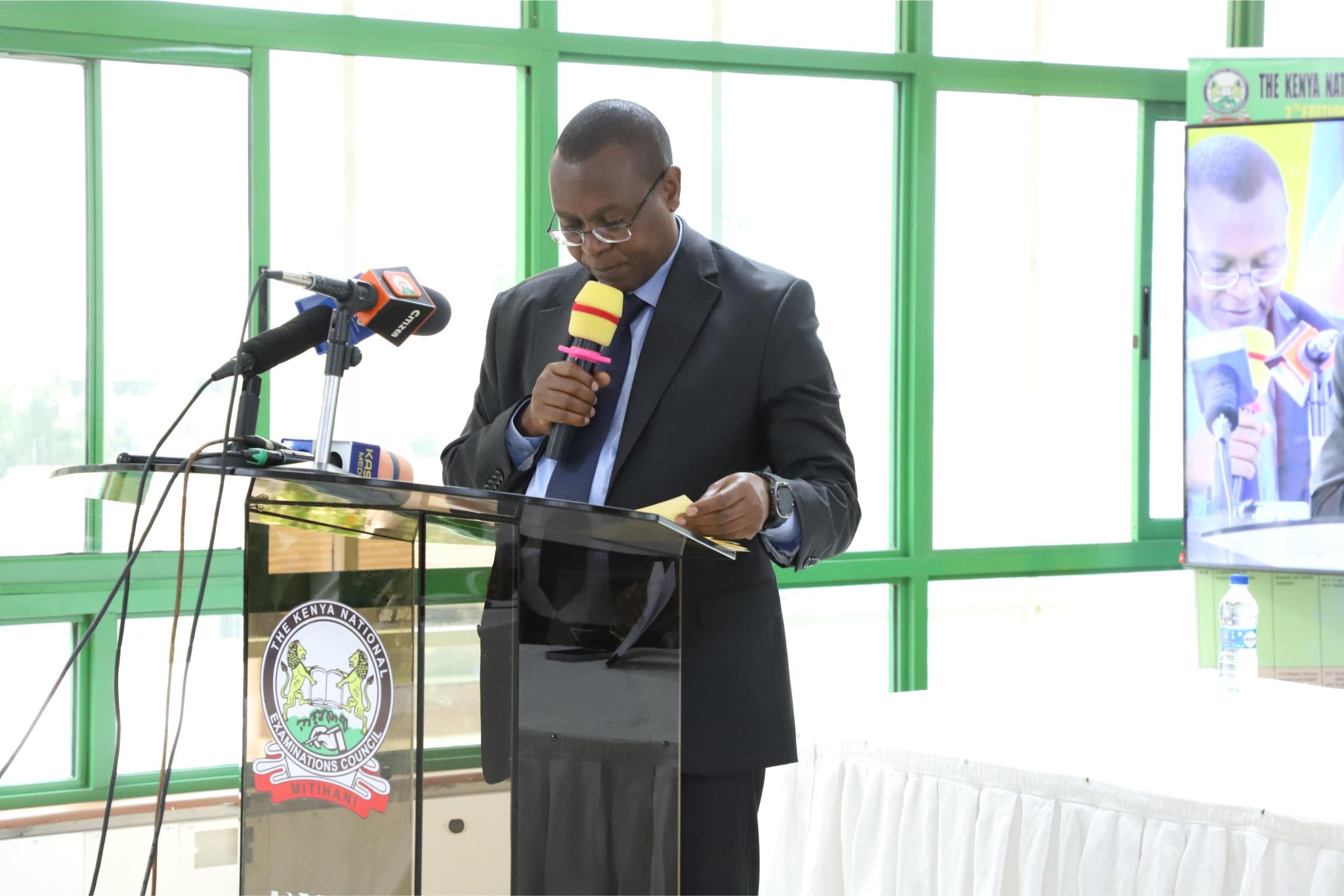The Kenya National Examinations Council has finalised preparations for the 2025 national examinations, set to start on October 17, with over 3.4 million candidates expected to sit for assessments nationwide.
This includes the first cohort for the Kenya Junior School Education Assessment (KJSEA) under the Competency-Based Curriculum (CBC). To manage the massive exercise, KNEC has deployed tens of thousands of supervisors, invigilators, and centre managers across the country.
Education Cabinet Secretary Julius Ogamba, KNEC Chairman Prof. Julius Nyabundi, KNEC CEO Dr. David Njeng’ere, and Teachers Service Commission Acting CEO Evaleen Mitei were present during the administration of the KJSEA on Friday, October 3.
CS Ogamba urged strict adherence to exam regulations and warned of harsh consequences for any form of malpractice.
“Jointly, we have to ensure that the administration of examinations and assessments strictly adheres to the established rules and regulations to safeguard the credibility of the entire process. Our collective efforts are necessary because of the high numbers and countrywide spread of the examination and assessment centres,” he said.
“We will have no mercy on anyone who will be found engaging in any form of malpractice. All candidates, centre managers, supervisors and invigilators must comply with examination regulations, failing which they will be subjected to the full force of the law," Ogamba added.
 Education Cabinet Secretary Julius Ogamba and KNEC CEO Dr. David Njeng’ere on October 3, 2025. PHOTO/KNEC
Education Cabinet Secretary Julius Ogamba and KNEC CEO Dr. David Njeng’ere on October 3, 2025. PHOTO/KNECActing TSC CEO Evaleen Mitei emphasised professionalism, urging teachers to take their responsibilities seriously as Kenya undertakes its first KJSEA transition.
“The whole world, including our children, is watching us to see how we are going to administer the first KJSEA and the transition to Senior School. I urge all teachers involved in the administration of this year’s examination and assessments to take their assignment seriously, follow guidelines and uphold professionalism to ensure a fair, authentic and credible examination,” she said.
Julius Nyabundi confirmed that preparations are fully complete and highlighted the importance of maintaining fairness, transparency, and credibility during exams.
“Preparations in readiness for the 2025 national examination and assessments are complete, and KNEC has put in place measures to ensure the performance of the learners is a true reflection of their effort,” he said.
“In discharging our tasks during the administration of examinations and assessments, we must ensure fairness, transparency and integrity in order to maintain the desired standards and credibility of our education system,” Prof. Nyabundi added.
David Njeng’ere detailed security arrangements, explaining that while security officers will have a limited role during KJSEA and KPSEA, they will be more prominent during KCSE.
“During the administration of KJSEA and KPSEA, security officers will be engaged only where it is absolutely necessary, in order to ensure that these assessments are administered in a normal and conducive environment for these candidates. They will only be engaged in the distribution of examination materials to examination centres and return of candidates’ answer sheets and scripts to the container in few areas that have security challenges. However, during KCSE examination, there should be at least two (2) security officers in every examination centre,” he said.
The 2025 exams will see a record 3,424,836 candidates sit for KCSE, KPSEA, and KJSEA. This massive exercise will be supported by 10,765 centre managers, 12,126 supervisors, 54,782 invigilators, and 22,247 security officers for KCSE alone. Primary and junior exams require even more staff, including over 125,000 invigilators.
Security is a top priority, with the addition of 25 exam storage containers, raising the total to 642. These containers will be secured by 2,568 police officers, while digital smart padlocks will be piloted in 250 containers to safeguard exam materials. Officers in charge of the locks will undergo specialised training ahead of the rollout.
To prevent leaks, KNEC will continue the double collection system for morning and afternoon KCSE papers, a practice credited with eliminating early exposure.
Njeng’ere also stressed the critical role of teachers as frontline defenders of exam integrity. “They are the only persons in direct contact with candidates, and their responsibility in preventing irregularities cannot be overstated,” he said.
The Teachers Service Commission has worked closely with KNEC to assign only teachers of high integrity for exam duties. Meanwhile, KNEC’s 24-hour command and call centres will monitor progress and provide real-time support throughout the examination period.
As the countdown to the exams begins, the Ministry of Education called on all candidates to stay focused. “The integrity of our exams defines the future of our learners. We must all play our role in protecting it,” DNjeng’ere added.
